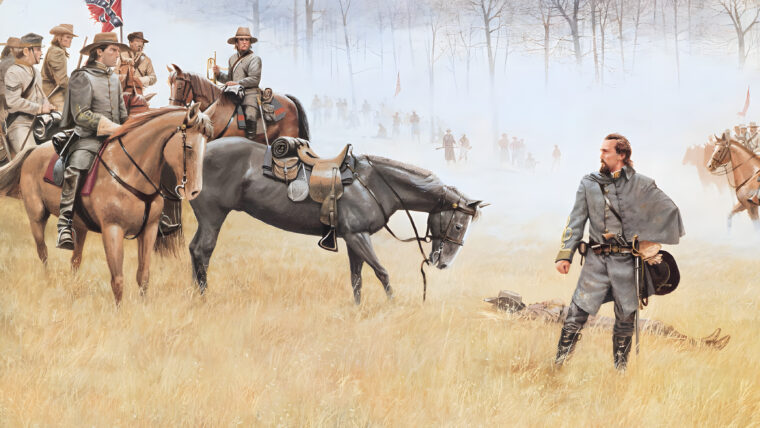
William T. Sherman
The Battle of Tupelo, June – July 1864
By Edward Holub and John Marchetti
“For God’s sake, if Mr. Forrest will let me alone, I will let him alone. Read more

General William T. Sherman was an officer of the Union Army during the American Civil War. William T. Sherman gained fame as a subordinate of General Ulysses S. Grant in the Western Theater and subsequently commanded the Army of the Tennessee and the Military Division of the Mississippi, effectively over all Union forces in the West. William T. Sherman led the Army of the Tennessee during the successful Atlanta Campaign and the decisive March to the Sea, turning toward the Carolinas and later accepting the surrender of General Joseph E. Johnston’s Army of Tennessee in 1865. William T. Sherman died in 1891 at the age of 71.

William T. Sherman
By Edward Holub and John Marchetti
“For God’s sake, if Mr. Forrest will let me alone, I will let him alone. Read more
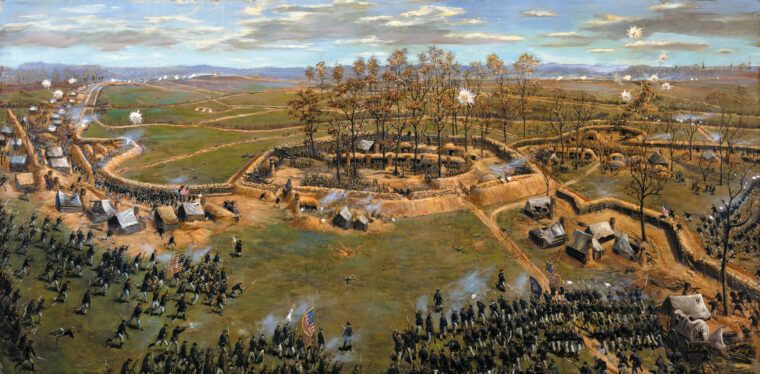
William T. Sherman
By the early spring of 1865, the Southern Confederacy was on the cusp of extinction. In every theater of the four-year-old Civil War, the gray-clad Rebels were getting the worst of things. Read more
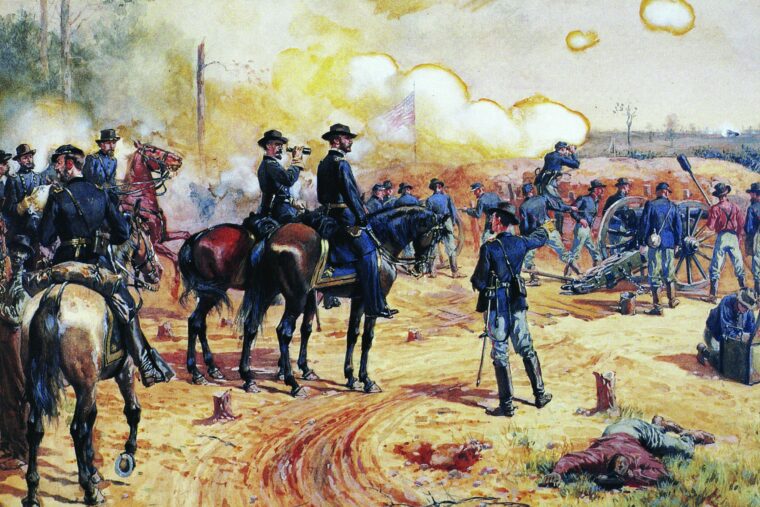
William T. Sherman
During the early afternoon of July 9, 1864, the 103rd Ohio Volunteer Infantry Regiment of Maj. Gen. John M. Read more
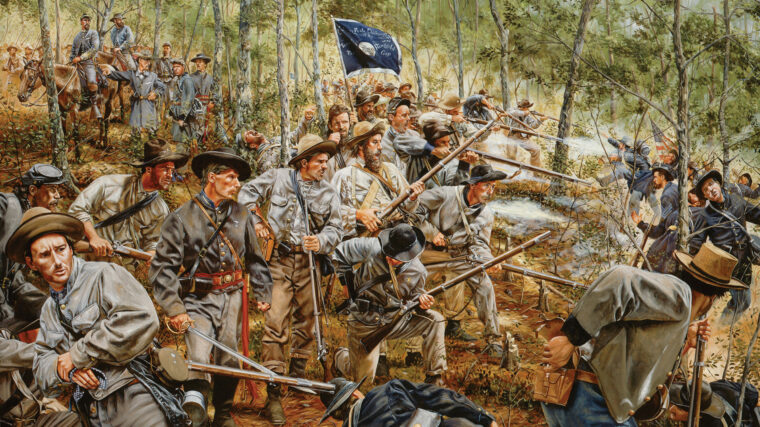
William T. Sherman
Peering through the thick underbrush west of Little Pumpkin Vine Creek, 30 miles northwest of Atlanta, on the afternoon of May 27, 1864, Ambrose Bierce had a bad feeling. Read more
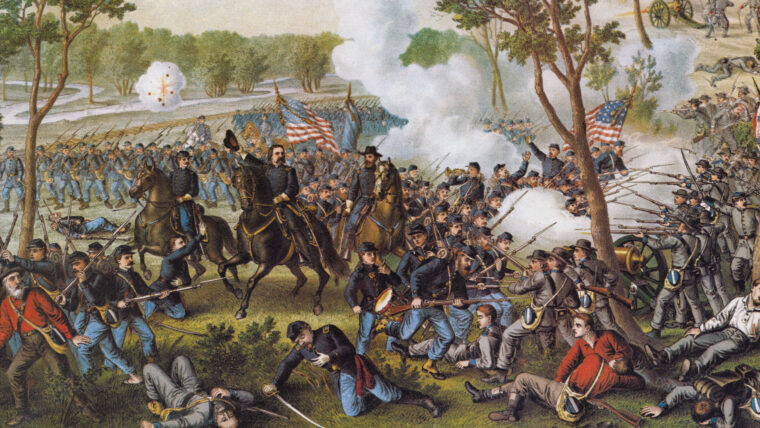
William T. Sherman
During the Civil War, the strategic importance of Vicksburg, Mississippi, was readily apparent to both the Union and the Confederacy. Read more
William T. Sherman
Mr. Morris is the author of seven well-received books on 19th Century American history and literature. He has served as a consultant for A&E, the History Channel, and edited a three-book series for Purdue University Press on American Civil War and post-Civil War history, journalism and literature. Read more
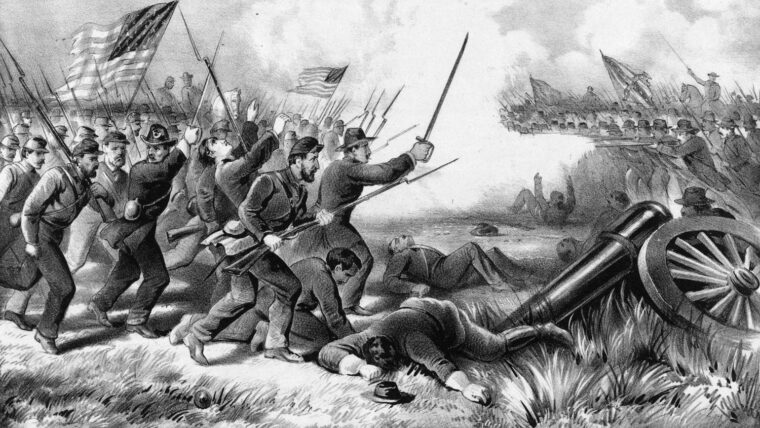
William T. Sherman
At the Battle of Jonsborough, Union General William T. Sherman hoped to destroy the Army of Tennessee and seize Atlanta, Georgia. Read more
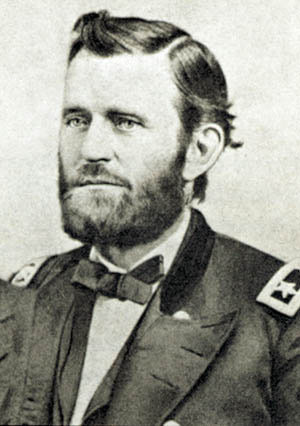
William T. Sherman
When the sun set on the Confederacy, the stars began to rise and shine, none more brightly for Northerners than that of Abraham Lincoln, and for Southerners than those of Robert E. Read more

William T. Sherman
In celebration of the sesquicentennials of General William T. Sherman’s Atlanta Campaign and March to the Sea, the Southern Museum of Civil War and Locomotive History is opening a special exhibit titled “1864.” Read more
William T. Sherman
For General Philiip Sheridan, war was a tonic.
“He was a wonderful man on the battle field,” one of his fellow Union officers recalled, “and never in as good humor as when under fire.” Read more
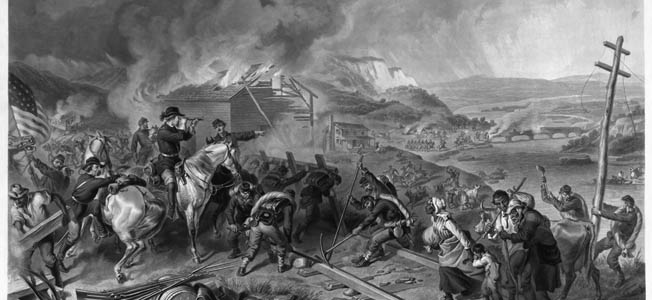
William T. Sherman
It isn’t how most would characterize William T. Sherman’s famous march across Georgia in 1864, but Thomas Ricks of Stars and Stripes begs to differ. Read more
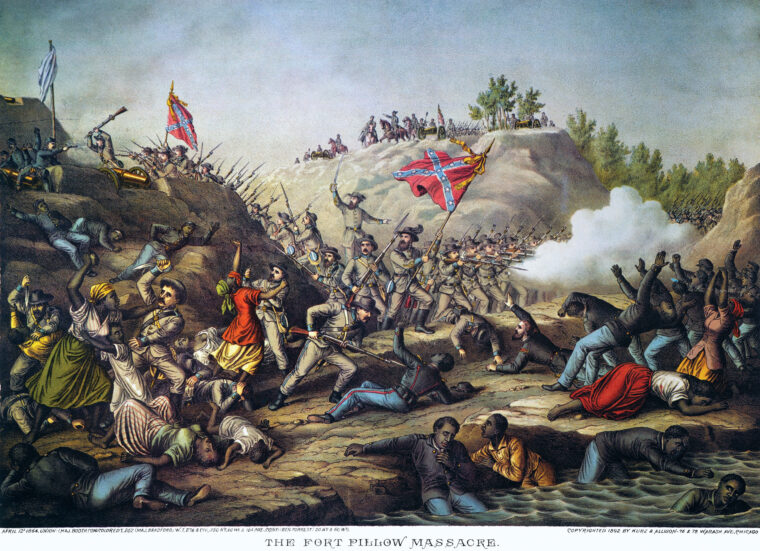
William T. Sherman
When Confederate Maj. Gen. Nathan Bedford Forrest and his 3,000 battle-hardened troopers rode back into their homeland of West Tennessee in late March 1864, they were not in the best of moods. Read more

William T. Sherman
By Mike Haskew
Union General William T. Sherman was a friend and trusted subordinate of General Ulysses S. Grant, commander of all Union armies in the field during the Civil War. Read more
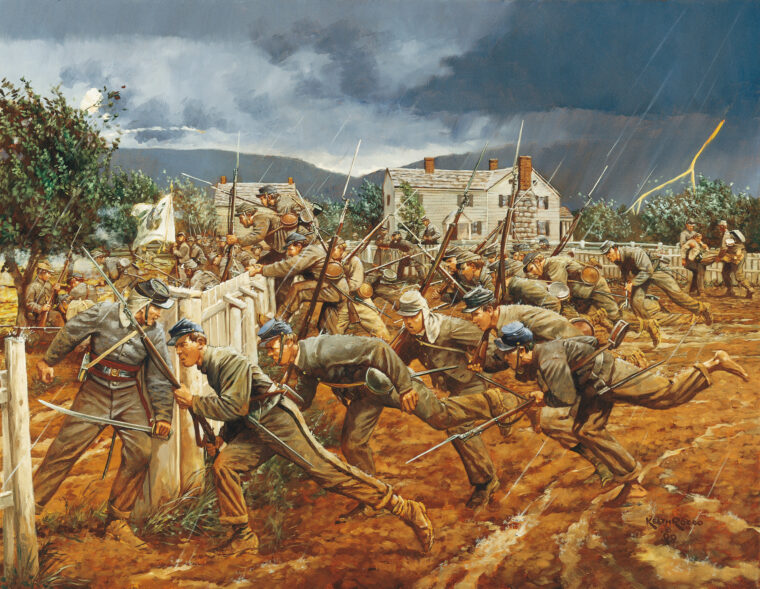
William T. Sherman
As the Civil War continued in the spring of 1864, a Shenandoah Valley resident lamented, “Our prospects look gloomy, very gloomy.” Read more
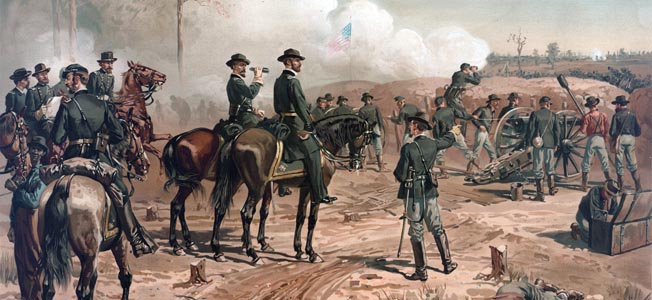
William T. Sherman
On September 3, 1864, a triumphant Maj. Gen. William Tecumseh Sherman telegraphed Washington, “Atlanta is ours and fairly won.” Read more
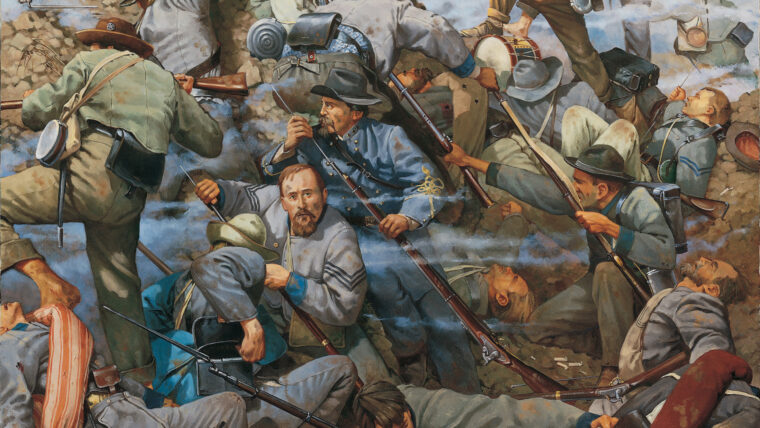
William T. Sherman
On the morning of November 30, 1864, Fountain Branch Carter, a 67-year-old farmer, planter, and Confederate sympathizer, watched as his front yard in Franklin, Tennessee, filled up with Union soldiers pitching tents and starting campfires. Read more
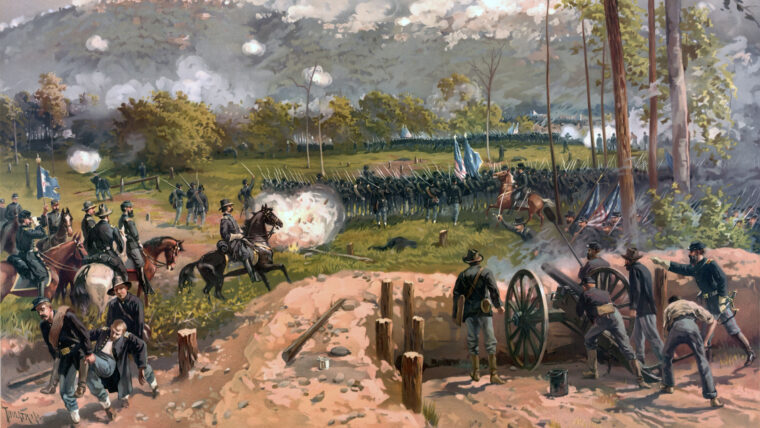
William T. Sherman
Shortly after dawn on June 27, 1864, Union artillery crews sprang into action on 200 guns facing miles of the Confederate defenses along the Kennesaw Line near Marietta, Georgia. Read more

William T. Sherman
As reveille sounded through the Union encampments on the south bank of the Tennessee River between Eastport, Mississippi, and Chickasaw, Alabama, on March 22, 1865, sleepy Federal troopers roused themselves, built fires, and cooked breakfast. Read more
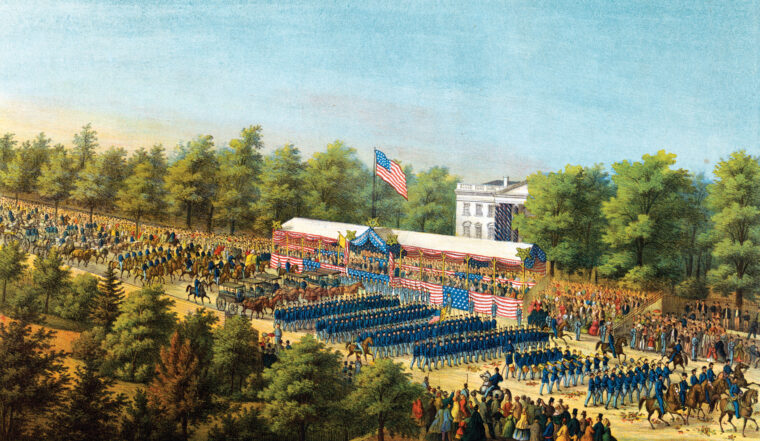
William T. Sherman
Robert E. Lee’s surrender at Appomattox, presaging the subsequent surrender of other Confederate forces in the West and the capture of Southern President Jefferson Davis a few weeks later, marked the triumphant end of the nation’s great sundering. Read more
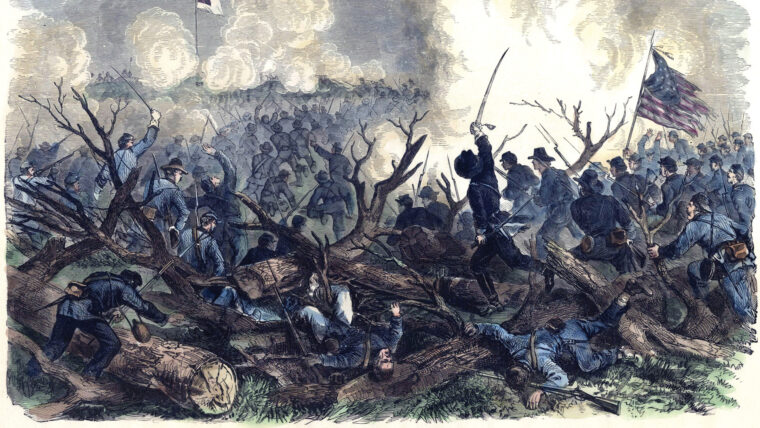
William T. Sherman
Nathaniel Banks was a political creature, and with his country in the throes of civil war, he now held the politically obtained rank of major general in the Union Army. Read more